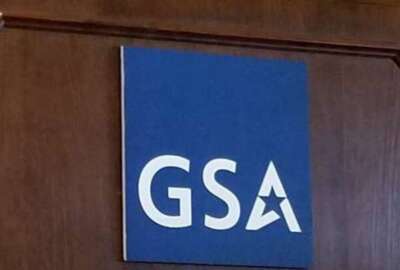Agencies fall short of small business contracting goals for 7th straight year
While agencies missed their overall small business goal in 2012, they did meet the governmentwide goals for small disadvantaged businesses and service-disabled...
wfedstaff | April 17, 2015 5:11 pm
For the seventh year in a row, agencies failed to award at least 23 percent of all prime contracts to small businesses.
The Small Business Administration reported Tuesday that agencies just missed the governmentwide mark in fiscal 2012, awarding 22.25 percent of all prime contracts to small firms. The total percentage of contracts going to small companies increased when compared to the 2011 aggregate, but the total dollars dropped by almost $2 billion to $89.9 billion.
“Overall, the contracting pie is down. We know that in this particular fiscal environment, the total dollars available for federal procurement is down year over year, but we’ve seen the portion of pie going to small businesses increase,” said John Shoraka, the SBA’s associate administrator for government contracting and business development, in a call with reporters Tuesday. “We’ve seen improvement year over year because there has been a lot of focus at the most senior levels and we engage small businesses so they know they can play in this market.”
The Office of Federal Procurement Policy said total federal procurement dropped by 4.5 percent to $513 billion in 2012. Shoraka said that means the amount of money eligible for small firms to win also dropped. SBA determines how much of the total federal procurement budget small businesses are eligible to bid on and that is how it measures progress against the governmentwide goals. For example, SBA doesn’t include air planes or tanks as small business eligible prime contract opportunities.
But SBA’s calculation of the baseline is coming under criticism by small business associations and lawmakers. Groups and members of Congress say SBA’s baseline is too low and, therefore, small businesses actually are receiving a smaller percentage than the agency purports.
High level focus making a difference
Shoraka said the focus by the administration and agencies on small business prime contracting opportunities is paying off in specific subsections including small-disadvantaged (SDB) and service-disabled veteran-owned businesses (SDVOB).
SBA reported agencies awarded 8 percent of all contracts to SDBs, which includes the 8(a) program, the highest percentage ever. Agencies also awarded 3.03 percent of all prime contracts to SDVOBs, the first time ever the government achieved the statutory goal of 3 percent.
“We’ve done a lot of outreach, engagement and matchmaking with our sister agencies to make sure we have a robust set of firms that are contract ready and qualified,” Shoraka said.
Additionally, SBA said six agencies met all of their small business goals last year:
- Department of Interior
- Department of Transportation
- Department of Treasury
- SBA
- General Services Administration
- Nuclear Regulatory Commission
In 2011, only one agency accomplished that feat.
Shoraka said five other agencies had significant overall scorecard improvements. He said, for example, the Justice Department jumped to an “A” from a “C” grade when SBA evaluated the agency’s entire effort. The Department of Housing and Urban Development saw a similar improvement, while the Office of Personnel Management increased to a “B” from a “C”, and NASA and the Veterans Affairs Department obtained “A” grades up from “B” the year before.
The progress agencies are making in some areas is dampened by the fact that the 23 percent goal remains elusive as does the 5 percent goal for women-owned small businesses and the 3 percent goal for Historically Underutilized Business Zone (HUBZone) firms.
Questions about baseline numbers
Rep. Sam Graves (R-Mo.), chairman of the Small Business Committee, said in a statement that missing the 23 percent governmentwide goal for a seventh straight year is unacceptable and the totals are somewhat misleading.
“If we look at the real number, you’ll find that small businesses only received 19.38 percent of all prime contract dollars last year,” Graves said.
“The administration shouldn’t be allowed to cook the books. If we can’t trust the administration to be honest about results, how can we trust them to be honest when it comes to health care, taxes, and the budget? According to committee analysis of data from the Federal Procurement Data System, small businesses actually received 19.38 percent of all federal contracts for fiscal year 2012. This analysis includes all contracts subject to the Federal Acquisition Regulation, such as contracts awarded and performed overseas, contracts awarded to federal prison industries, and contracts for utilities, among others. The federal government spent $515.8 billion in prime contracts in FY 2012 and, of that amount, $100 billion of all contracts were awarded to small businesses.”
Graves said a provision in the 2013 Defense Authorization bill requires SBA to use a more accurate baseline.
Shoraka said SBA, the Office of Federal Procurement Policy and GSA analyze the Federal Acquisition Regulations and the Small Business Act to determine what percentage of federal procurements are small-business eligible.
“We have worked with OFPP to bring integrity into the Federal Procurement Data System. We’ve had anomaly processes which we go through every year before we report the dollars,” he said. “Over this last year, we have engaged each of our sister agencies to take more and more responsibility for the dollars they report into FPDS. We’ve created reporting and anomaly processes for the agencies to undertake on their own, and they certify their numbers to OFPP annually. We also do spot checks before we report these data and we share the information that we find from these spot checks with each of the agencies, so they go back and look at these potential anomalies so they can make sure the numbers they are reporting are accurate.”
SBA’s determination of the actual small business contracting baseline is not a new practice. It has been doing this for more than a decade.
Many efforts, little progress
Cris Young, a small business owner, federal contractor and president of the U.S. Small Business Chamber of Commerce, said she’s pleased to have seen even minimal progress, but agencies, and SBA in particular, could be doing a lot more.
“We could train the contracting officers and the contracting specialists a little bit better so they could know what programs are available out there and how to use them,” she said. “We could hold people who are committing the fraud that we see out there, as far as these programs are concerned, more accountable. That would also help and free up dollars in contracts so legitimate contractors would get that business. Then you’d see your numbers jump up there.”
The Obama administration and Congress have tried through separate efforts to get more prime contracts to small businesses.
President Barack Obama in April 2010 signed an executive order requiring more focus and attention to small business contracting. Most recently in June 2011, OFPP and SBA issued a memo trying to address long-standing problems, including ensuring small businesses get proper consideration for all contracts under the simplified acquisition threshold of $150,000.
Last year, Graves tried to increase the governmentwide goal to 25 percent from 23 percent. While his bill passed the committee, it never got voted on by the full House. In early June, Graves introduced a new bill, called the Make Every Small Business Count Act, H.R. 2232, to offer incentives for large firms to subcontract more with smaller companies.
RELATED STORIES:
Special Report: The Small Business Dilemma
OMB increasing the tempo of strategic sourcing
OFPP, SBA trying to fix small business contracting shortcomings
Small business contracting goal remains elusive
Bill to increase agencies small business contracting goals
In 2011, small federal contractors too it on the chin twice as hard
Copyright © 2025 Federal News Network. All rights reserved. This website is not intended for users located within the European Economic Area.
Jason Miller is executive editor of Federal News Network and directs news coverage on the people, policy and programs of the federal government.
Follow @jmillerWFED






